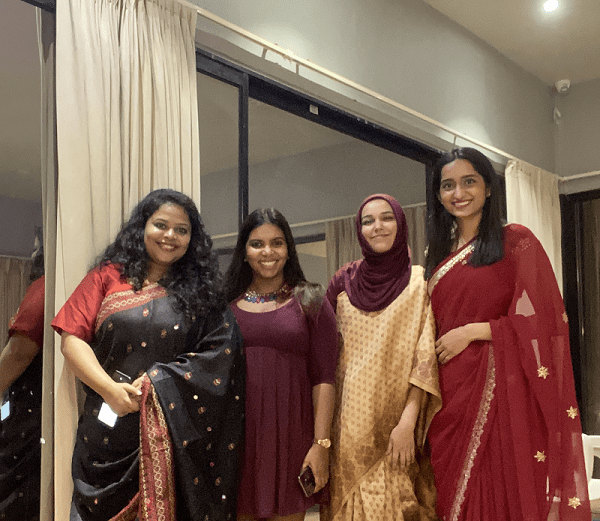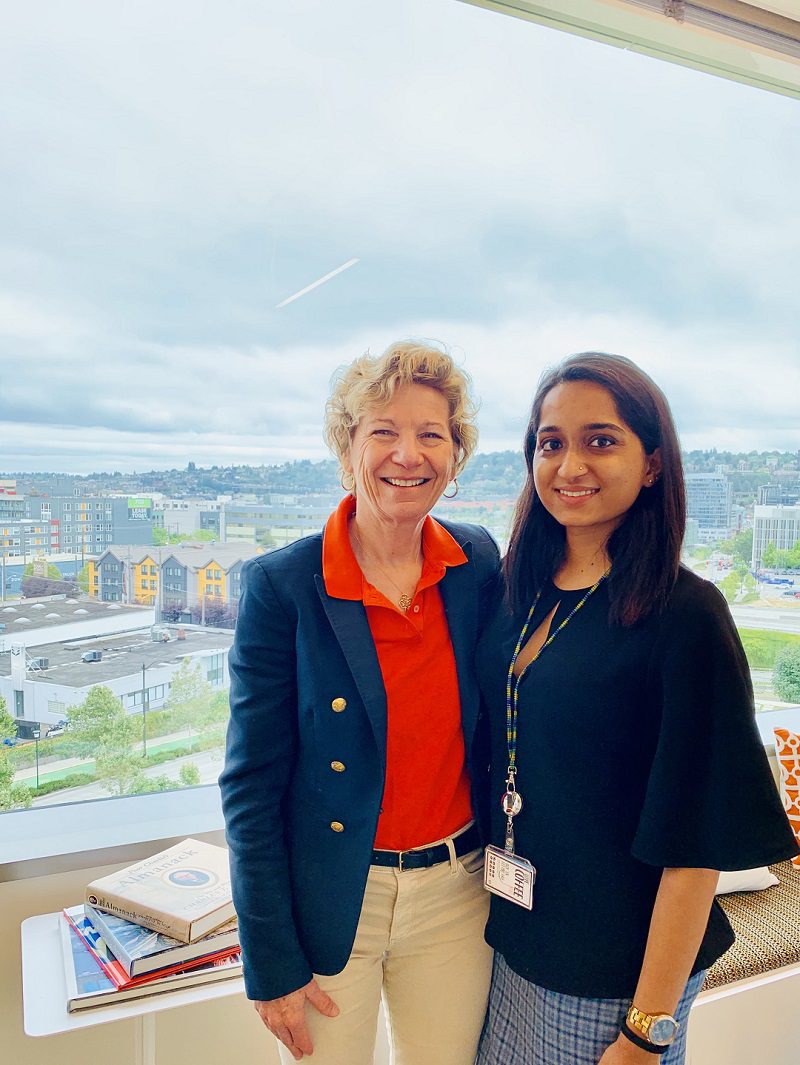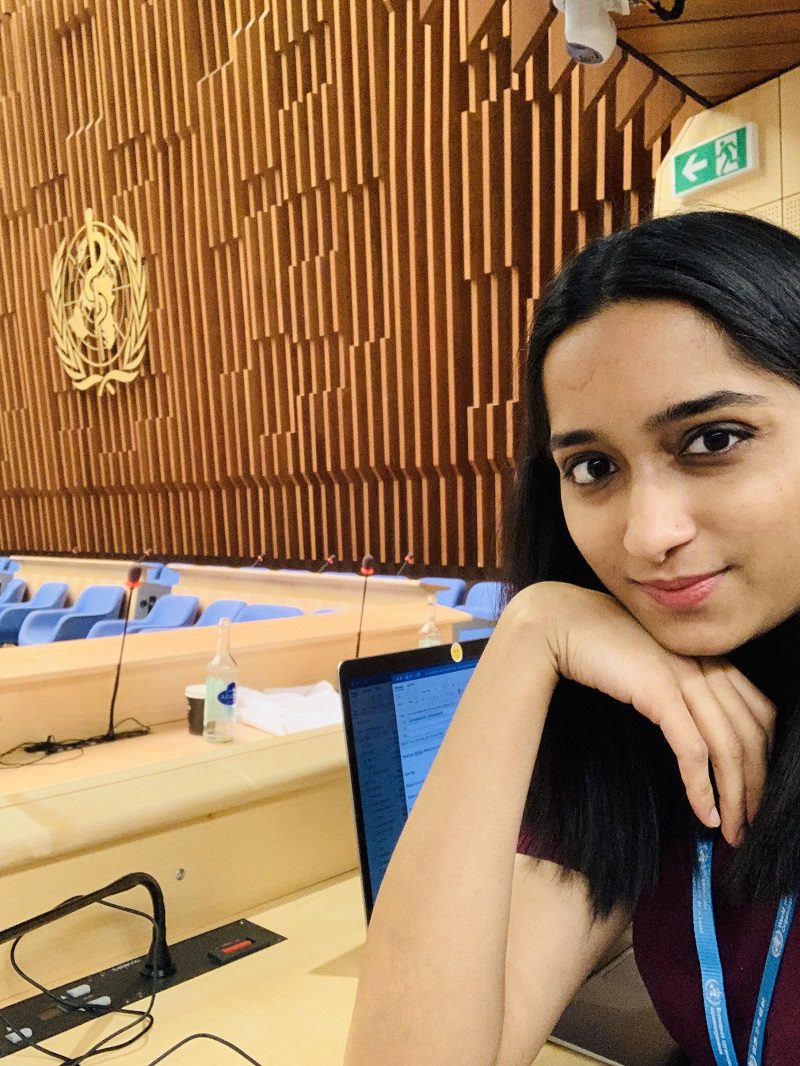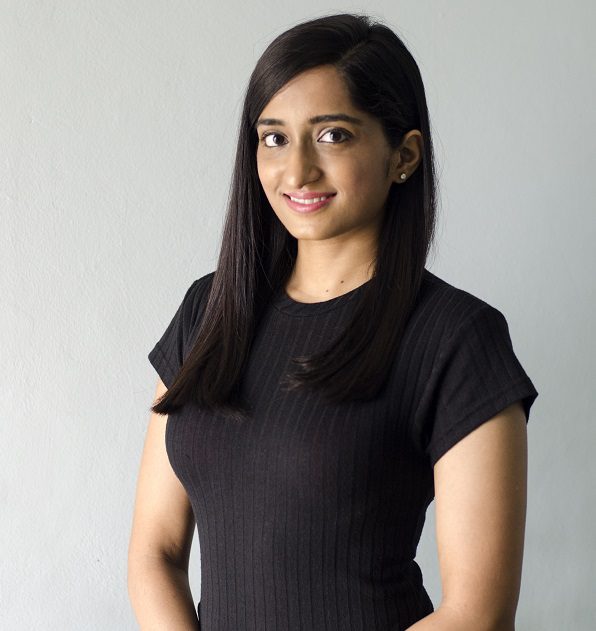(January 7, 2022) A physician and medical professional who entered the halls of public policy and healthcare in India to augur change, Dr Ruha Shadab today champions Muslim women empowerment through her organisation Led By foundation. The Indian social entrepreneur brings rejuvenated depth as a doctor to public policy which often gets waylaid by the lack of on-the-ground knowledge. The Harvard-educated girl comes with a wealth of experience from her time at NITI Ayog, the Clinton Health Initiative and the Gates Foundation, which endowed Ruha with the tools to spearhead social entrepreneurship.
From Saudi Arabia to India
The Saudi Arabia born’s shift to India as a child brought her in touch with a starkly different cultural landscape – from being a majority to a minority. After finishing her MBBS at Lady Hardinge College in Delhi, she worked at the Clinton Health Initiative, and at Government of India think-tank NITI Ayog. She then went on to Cambridge, MA, for master’s in public policy at Harvard Kennedy School (2019-20). The amalgamation of these key roles saw Shadab hone the skills to lead and emulate. It nurtured a philosophy steeped in giving. The more Ruha searched, the less she found Muslim women represented in the Indian work force. Not to mention an abject lack of opportunities, learning and foundation, imperative to growth.

Dr Ruha Shadab with her Led By foundation team
“I grew up as a middle child in a family of five. I have an elder and younger brother who are arguably my closest friends. They are my biggest supporters and cheer leaders – I love them to absolute death,” smiles the 31-year-old Indian social entrepreneur. Ever grateful for her parents support, the daughter adds, “They continue to be supportive of my educational and professional decisions when I moved from medical sciences to public policy and social entrepreneurship. I think they have great faith in me and my moral compass. They are my guiding north star.”
The physician turned towards public policy and healthcare, studied at Harvard on a public service fellowship, and was the first Indian to be awarded the Harvard Kennedy School women’s leadership award. “The experience was fantastic as it opened up and widened my exposure, dramatically. I was able to learn from other movements, and other successful social endeavours. It was one of my biggest learnings, which I was able to bring back home to start Led By foundation,” Shadab tells Global Indian.
As the first Indian to receive the Barbara Johnson Women’s Leadership Award, Ruha is grateful for the appreciation of her hard work. “The award has five criteria – to build a community at the school which I did by organising the largest student-run conference, the India Conference at Harvard. Next was furthering issues of public importance outside the school, where I spoke about the inclusion of Muslim women in India. The third was being an example of a potential role model for other women aspiring to be leaders. I was humbled as they thought my work was that of a potential role model. Fourth, was displaying excellence in academic achievement (through grades),” explains the Muslim woman social entrepreneur who was selected for other leadership programmes while there. The fifth – being able to leverage leadership to advance gender equity in unprecedented times, Ruha continues to address with LBF.

Dr Ruha Shadab with the CEO of Gates Foundation
How vaccines can change the world
In a world where Covid strains continue to paralyse nations and people in 2022, Shadab, during a project at Yale, (while doing her master’s at Harvard) worked on the ethics and inequities of vaccines – most pertinent to current pandemic times.
“I was working at Yale while a student at Harvard, as co-chair of the India Conference at Harvard, as first author for a medical ethics paper, and later I interned at the Gates Foundation on a global health strategy framework on cervical cancer. It was extremely interesting that we were discussing global inequities of vaccines. Our argument was on how to address global inequity of vaccine supply for cervical cancer, which is the only cancer that can be cured by a vaccine right now. Once you get infected with the HPV (Human papillomavirus), you can develop cervical cancer at any point in life. So, it’s important to get the vaccine before you ever get exposed to the virus – it prevents you from getting the cancer,” enthuses the public policy expert.
Addressing the lack of supply, she elaborates, “It’s also the most expensive vaccine which is a part of the immunisation protocol. With limited supply, and an expensive vaccine, how do we ensure that this gets to the developing world where it is needed the most?” thus resonating with current Covid inequity.
The team looked at the problem scientifically and ethically. “Ethically, it is about minimising inequities, and scientifically, the two doses versus one. You can start to sense these conversations are even more relevant in Covid. The whole argument about the ethical framework for addressing vaccine inequity is applicable to the Covid vaccines. Having all the thinking done by the most senior scientific advisors, and knowledgeable experts of HPV, and to be with them for a year discussing the problem, and also seeing how our answers adapted to a Covid and pandemic world was interesting. It felt worthwhile to be able to contribute to address global inequities for healthcare,” the Indian social entrepreneur avers.

Dr Ruha Shadab at WHO
When medicine led to an authority on healthcare
Her NITI Ayog role was where Ruha first broke ground. She was entrenched into the world’s largest government health insurance scheme. “It was a fantastic experience. I understood the personal pressures of a government, and the nuances of public policy making,” says the girl who loves donning her jogging shoes to go for a run. If not that, then it’s baking which relaxes the Indian social entrepreneur.
Her focus has evolved – to promote a cohesive, respectful and inclusive economy emphasising on eliminating entry and retention barriers for underrepresented women.
At the Clinton Health Foundation, was her first non-medical role. “A very senior doctor who worked in government relations and stakeholder management and I were the only doctors. I was the only young doctor, fresh medical graduate, that Clinton at that point had ever hired in India,” says Ruha who underwent a massive cultural shift from working in a hospital with no concept of weekdays and weekends to working in a structured corporate setup. “It helped hone my quantitative skills. It was arguably my first heavy step towards public health and policy,” she adds.
How to lead by example
Ruha started the Led By foundation in 2020 to champion Muslim women in India. The Cheng Fellow started it as the first leadership incubator for Indian Muslim women which provides experiential leadership to under-graduates and post-graduates, and connects them to mentors, even aids with capital.
“Our goal is to represent Indian Muslim women in the work force. We are currently 8 percent of the population but less that 1 percent of any leadership roles. There is work to be done. It is also important to find root causes of different access and work towards solving those root causes through Led By,” the Indian social entrepreneur explains. Through its incubator, LB foundation has supported a large number of women dream bigger, apply for dream jobs, get coached and nurtured through the core team, with over 150 advisors.
“We’ve had women nurture entrepreneurial dreams, today, one is a co-founder of a multi-million dollar ed tech startup which recently got funded,” says Ruha. Jobs, colleges and entrepreneurship guidance aside, the aim is to, “help move the need-alone workforce participation of Indian Muslim women.”

Dr Ruha Shadab
The fellowship aided 24 women in 2020, and has coached a total of around 60 fellows. Led By has also worked with over 5,000 women since inception. Executive coaches like Kit Pappenheimer, Leadership in Motion and Dr Shreya Sarker-Barney, founder & CEO, Human Capital Growth among others mentor the girls.
Policy matters to Ruha who is often seeing pouring over the Economist.
Ruha, the girl with a plan
The Indian social entrepreneur’s love for India has grown since she moved as a child. Having lived and worked in the US, the sights, sounds and hubris of India inspire her.
“What I love about returning to India every single time is having these physicals markers of my memories – the story of my life was written in the streets of Delhi and NCR, no place feels like home like this city. India is home, you love your home because of the sheer reason that it is your home. The resilience of India as a country, as a people and as individuals amazes me. That inspires me every day, that’s why I love India,” says Ruha, who is ready to move forward as a torchbearer for Muslim women empowerment as she continues leadership fellowships and accelerator programmes in 2022, adding, “Inshallah, I hope to have 10,000 women benefit from our programmes very soon.”



